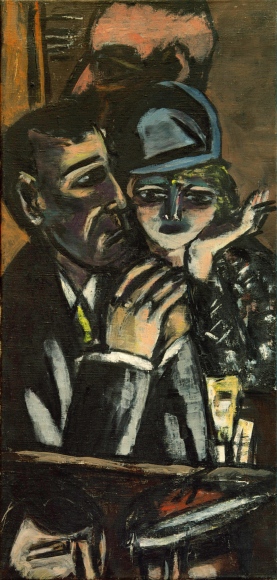I am speaking at a conference on March 23-24, 2017 at the University of Cambridge (UK) entitled “From Refugees to Restitution: The History of Nazi Looted Art in the UK in Transnational Perspective.” My presentation will address the various national panels created in response to the Washington Conference by European countries to address claims for Nazi-looted art in state collections. The roster of speakers is impressive (present company excluded), and it promises to be a fascinating two days. The program is available here, and the conference website is here.
Conference in Cambridge—“From Refugees to Restitution: The History of Nazi Looted Art in the UK in Transnational Perspective”
Topics: Wiesbaden, London, Holocaust Art Restitution Project, Paris, Art Recovery Group, Constantine Cannon LLP, Emily Löffler, Pierre Valentin, Events, Johannes Nathan, Karlsruhe, Marc Masurovsky, Sotheby's, Nicholas M. O'Donnell, Emmanuelle Polack, Leopold Museum, Frankfurt, Jewish Claims Conference, Victoria Louise Steinwachs, Debbie De Girolamo, Tabitha I. Oost, Bianca Gaudenzi, Jewish Museum Prague, Robert Holzbauer, Tessa Rosebrock, Staatliche Kunsthalle, Laurel Zuckerman, Shlomit Steinberg, Richard Aronowitz-Mercer, Maike Brueggen, Nathalie Neumann, Simone Gigliotti, Royal Holloway University of London, Anne O. Popham, Ulrike Schmiegelt-Rietig, Isabel von Klitzing, Landesmuseum Mainz, Michaela Sidenberg, Mary Kate Cleary, Institut National d’Histoire de l’Art, Fluchtgut, Diana Kostyrko, Elizabeth Campbell, University of Denver, Evelien Campfens, Leiden University, Angelina Giovani, Jennifer Gramer, Agata Wolska, Nathan Fine Art GmbH, Potsdam, Friederike Schwelle, Art Loss Register, Provenance Research & Art Consulting
Augsburg Prosecutor Rejects Idea of Making Deal with Gurlitt, Harvard and LACMA Beckmann Paintings Highlight Difficulty Ahead Without Agreement
Just days after attorneys for Cornelius Gurlitt floated the idea of discussions with survivors and heirs for a possible resolution to the questions about the artworks found in his apartment two years ago that are suspected of having been stolen or sold under duress during the Nazi era (and after the prosecutor was ordered to make a full list available to journalists), the prosecutor in charge of the investigation categorically rejected the possibility of any deal with Gurlitt.
Topics: Erhard Göpel, Frankfurter Allgemeine Zeitung, Stuttgart, Wiesbaden, FAZ, Focus, Hildebrand Gurlitt, Cornelius Gurlitt, Augsburg, Amsterdam, Willi Korte, Schwabinger Kunstfund. Kunstfund München, Marvin Fishman, Reinhard Nemetz, Gurlitt Task Force, Germany, Fall Gurlitt, The Art Newspaper, Gurlitt Collection, Max Beckmann, Karl Buchholz, Robert Looker, Entartete Kunst, Bar Braun, Beutekunst, Schwabing, Magdeburg, LACMA, Ersessene Kunst, Harvard, Gurlitt, Bavaria, Busch-Reisinger, Los Angeles County Museum of Art, degenerate art, the Central Collecting Point, Augsburger Staatsanwalt, www.lostart.de, Nazi art, Sotheby's, Roman Norbert Ketterer, Raubkunst, Verjährung, Mayen Beckmann, National Gallery Berlin, verschollene Kunst, De-Nazification, Selbstbildnis, Self Portrait
Secret Witness Contradicted Hildebrand Gurlitt’s Claim to Monuments Men that His Art was Burned in Dresden
From Dresden to Aschbach to Düsseldorf—New Scholarship in U.S. Archives Traces Hildebrand Gurlitt at War’s End, Could Affect Cornelius Gurlitt’s Claim to Good Faith Ownership
The Main Post has an article today (in German) by Christine Jeske tracing the late-war and post-war trajectory of Hildebrand Gurlitt and his now-infamous collection. The article is fascinating, and sheds considerable light on how the collection came through the war and how Gurlitt evaded greater scrutiny that might have revealed the trove’s whereabouts earlier. It also puts into context any claim Cornelius Gurlitt might now have to argue he took possession of the paintings from his father unaware of their provenance—what will be a critical argument, particularly if yesterday’s Cultural Property Restitution Law proposal by Bavaria becomes federal law in German.
Topics: Wiesbaden, Cultural Property Restitution Law, veschollene Kunst, Franken, Franconia, Hildebrand Gurlitt, Cornelius Gurlitt, George Clooney, Erik Berger, Augsburg, Dresden, Nuremberg, Fall Gurlitt, Monuments Men, Gurlitt Collection, Karl Haberstock, Kunstverein, Entartete Kunst, Munich, Heiner Dikreiter, Beutekunst, Freiherr Gerhard von Pölnitz, Bavaria, Kulturgut-Rückgewähr-Gesetz, Nürnberg, Düsseldorf, Schlüsselfeld, Monuments Fine Arts and Archives, Gemäldegalerie Dresden, Christine Jeske, Walter Paech, degenerate art, Städtische Galerie, München, Main Post, Karl and Magdalene Haberstock Foundation, Raubkunst, Verjährung, Nazi Raubkunst, Aschbach




